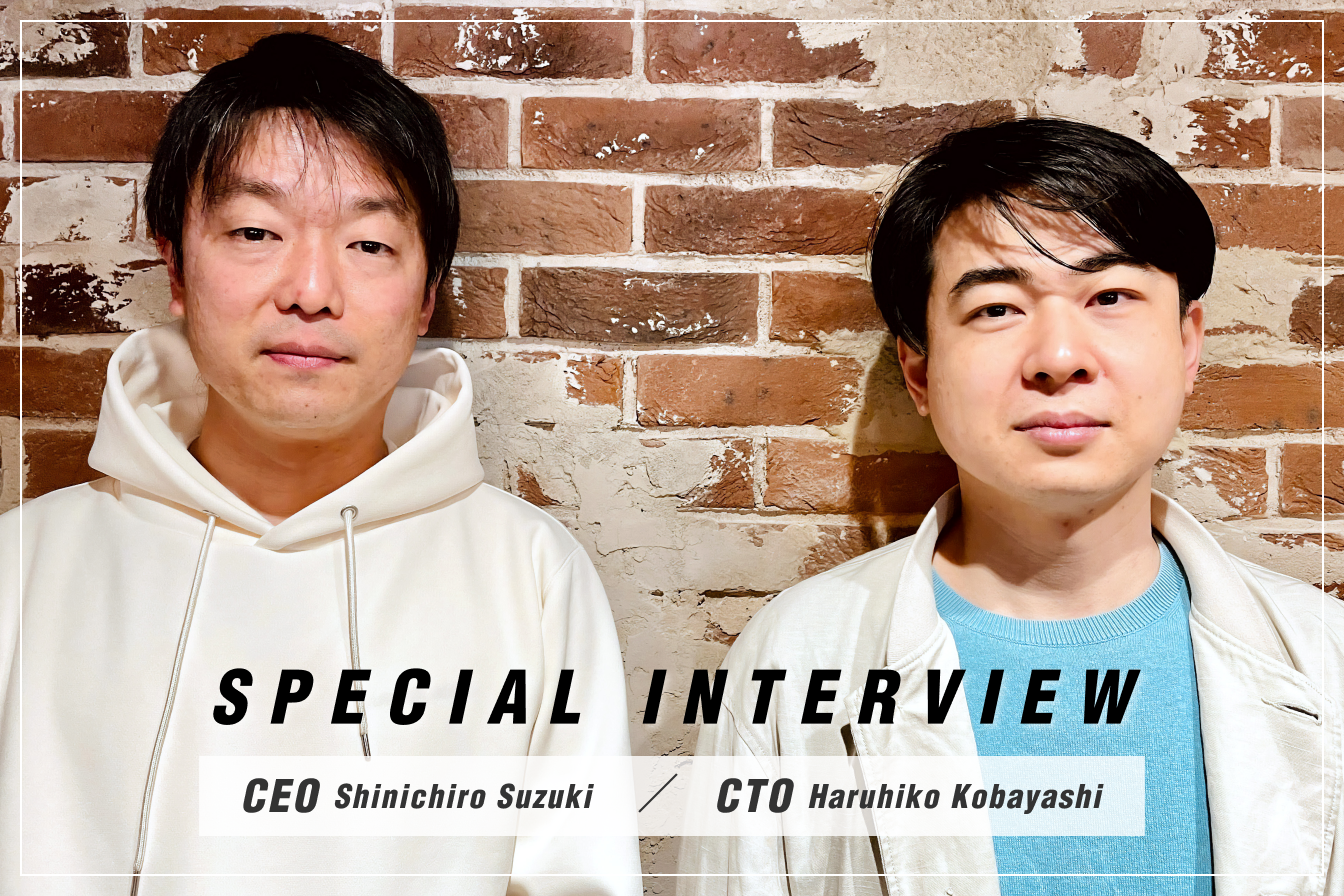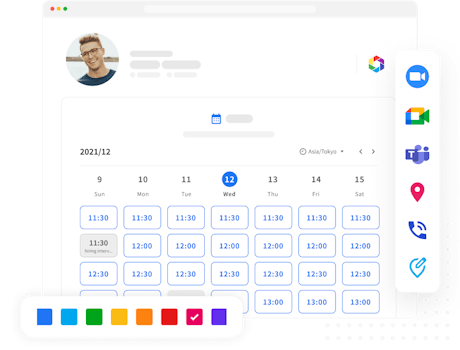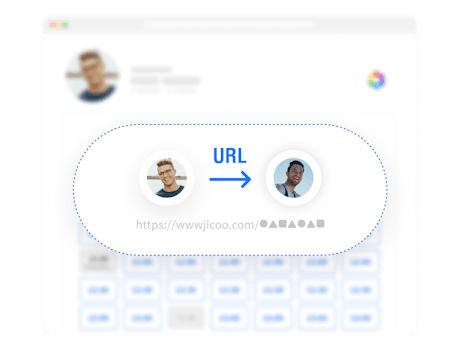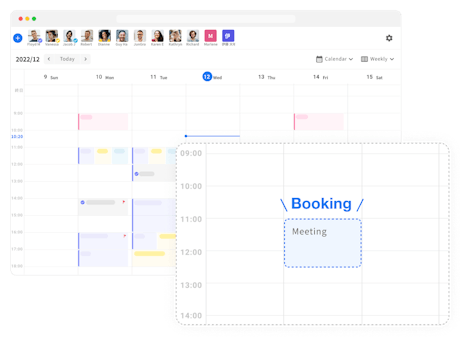
Software that creates good work through remote work. Why we challenged Zero to One again? Jicoo Founding Story
Tue, Mar 29, 2022Jicoo" aims to create "good work" without time or place constraints under the vision of "good work anywhere, anytime," and to be a platform for diverse work styles that suit individual situations and thoughts.
Launched iOS/Android apps in March 2022, with support for major devices including Mac apps, creating an environment that can be used according to users' life situations. We interviewed CEO Suzuki (left) and CTO Kobayashi (right) on the occasion of the almost one-year anniversary of the official release in April 2021.
We asked them about how they started Jicoo, their thoughts on product development, and future prospects.
Jicoo was started because of the challenges of remote work.
-- Can you tell us what made you decide to start Jicoo in the first place?
Suzuki: In my previous job at Space Market, I was a co-founder and literally launched the service from scratch, but when I reached the end of my career, I was just before 40 years old and was thinking about what I would do for the next 10 years.
The sharing service I was working on at my previous job was a fusion of real and tech, but I wanted to compete once again with the power of software development, which was the starting point of my career. I usually had a sense of challenges in coordinating meetings and sharing information both remotely and in real life, so when I dug deeper, I realized that there were a variety of internal and external issues and problems.
Remote work and hybrid work had been a major initiative of the team I was managing for 4-5 years before it became the majority in Corona, and while it has wonderful benefits such as time with family and time to focus, I also felt it was difficult with the current tools and structure. The company was also looking for a way to improve the quality of its products and services. I decided to provide a service that would solve this problem, and that is how "Jicoo" was started.
--It has been a year since Jicoo was officially opened to the public, how do you feel about it?
Suzuki: It's been a year of really steadily refining the product lol. Thanks to that, the product has become a product that many users continue to use. It is a PLG-type business model, especially in SaaS, so it is good to see that the quality of the product is linked to sales.
Compared to the intermediary type of media services that we have been providing, we receive user feedback more directly, and we can use that feedback to examine and reflect it in better products and merchandise.
Kobayashi: I joined the company in April 2021, and MRR has increased more than 10 times since then, which gives me a sense of speed. The scale is still small, but sales are piling up, so I'm glad I joined lol.
In my previous job at Space Market, I concentrated on development, but at Jicoo, I have a lot of other things to think about. I need to have a broad perspective on technology trends, industry trends, customer feedback, hiring, and so on.
Early startups need to be steady and muddy
--This is the second challenge between the two of you. Can you tell us about your relationship?
Suzuki: I moved to Yahoo! Sports (*currently Sport Navi) from a company I joined as a new graduate, and we worked together at Yahoo!
Kobayashi: Suzuki-san and I were on the same team, and we worked together on the Torino Olympics feature for Yahoo! It was for a period of about six months.
Suzuki: Mr. Kobayashi was too active and as a result, he was pulled out of the team by another department and moved to a different team lol. From there I moved to Recruit and started my own business, and at that time I was looking for a talented engineer and came up with Mr. Kobayashi.
Kobayashi: My career started when I joined Yahoo! I developed the backend for sports and SNS services, and was also in charge of other middleware services used throughout the company. From there, I moved to a foreign company, RealNetworks, where I worked as a full-stack engineer on Rails application development and video streaming services. At Space Market, my previous company, I was the first engineer to join a startup in its early stages.
Suzuki: I was the only one who could create the product during the startup period, so I was thinking about how to find the first engineer. I wanted to hire someone better than myself. In an early startup, it is important to be able to do steady and muddy things, and you need to be able to move forward step by step. New technology is important, but it is also important to be able to build a stable service foundation. I thought that Mr. Kobayashi was an excellent person with that mentality and asked him if he would like to work with me.
Kobayashi: I also trusted Mr. Suzuki's engineering skills, so I decided to join him without hesitation.
Suzuki: Now that I think about it, Mr. Kobayashi was often involved in the launch of new services, so that was also a good thing.

CTO with a proven track record of success
--How did you come to join Jicoo as CTO, Mr. Kobayashi?
Kobayashi: I had been working as an engineering manager at my previous company, but the environment changed in many ways when I became a Corona Disaster. I went from working remotely once a week to four times a week, and I felt that I needed to work on teamwork, collaboration, and other areas to improve team productivity.
At that time, I attended a party that Mr. Suzuki was attending and heard that he was working on a service to improve remote work. I also heard that he was looking for a CTO since he was going to take over as CEO, so I gave him my hand because it fit with my sense of the issues.
Suzuki: I was surprised, but since he was also my former boss, I thought it would be a good choice for Mr. Kobayashi's career. He is also a colleague who knows me well, and since we have been working together for a long time and have had successful experiences, he is the best person for the job.
--Can you make use of your previous experience in starting a business?
Suzuki: That's a tough question lol. However, what we have in common is that we are all speedy and not afraid to make errors, and we value the attitude of taking on challenges from now on so that it will become part of our culture even as we increase the number of people. It is very difficult to keep practicing this attitude, but without it, it would be difficult to achieve high growth.
Mr. Kobayashi also agrees with me as a leader of engineers, and we are keeping this in mind in both product and organization development.
Kobayashi: On a technical note, Space Market used a framework called Rails in the early days, but over the past 6 years we have gradually shifted to Node.js x Rails due to the lack of a modern front end environment and the lack of a type. We migrated to TypeScript.
Jicoo uses a monolithic architecture that combines Node.js x TypeScript. The system is a good balance of development speed, compatibility with modern front-ends, and robustness with types, and is close to the culmination of our past development experience.

We want to make Jicoo a globally used service
-- Now that the groundwork has finally been laid, what will happen to Jicoo in the future?
Suzuki: What I want to do most is to make Jicoo a service that is used all over the world. I believe there is still a lot of room for automation in time management and organization, and new technologies are available. I would like to make Jicoo a service that can provide value that does not yet exist, as it is a common issue worldwide.
Kobayashi: I think hybrid work has taken root with the Corona Disaster, and remote hybrids will continue to increase as they become more prevalent outside of the IT field. And I want to create a future where remote work is more productive than real work. To achieve this, I would like to continue to grow Jicoo and make it a service that can be deployed globally, even outside of Japan.
Suzuki: We have a vision of "good work anywhere, anytime. While improving our own work with our products, we hope to provide a service that enables our client service users to realize a new and free way of working, with high productivity even in remote and hybrid work.
--What do you have in mind for the immediate future?
Suzuki: I think we have finally laid the foundation for what we want to do, starting with the beta version. We have started offering a mobile app, and we are also releasing a voting feature that will allow multiple people to schedule their own dates. We will continue to brush up our products and provide unique services that only Jicoo can offer.
Kobayashi: We are in the start-up phase, and we believe that we need to automate more in order to grow with the number of people we have. We would like to automate inquiries, support, QA, etc., and create an environment where humans can focus on essential tasks. As an organization, we would like to make it a group that can create services despite the small number of people. The engineers we have now are in charge of data analysis, specification, and backend. I believe that we can polish our products by increasing the number of engineers who can do everything from data analysis, specification, back-end, front-end, markup, and application development.

--Can you tell us again about your enthusiasm for the two of you joining forces?
Kobayashi: I think Mr. Suzuki is the most outstanding creator I have ever worked with. I believe that with Mr. Suzuki, we can make Jicoo a product that improves remote hybridization.
Suzuki: As we are trying to grow Jicoo, I can trust Mr. Kobayashi to be the CTO with confidence. I am not writing code anymore to paint the big picture as CEO lol. With Mr. Kobayashi, I think I can leave everything to him and let go. The speed of evolution of the product is already totally different this time with Zero Ichi compared to the past. The team has a much higher basic strength in what they can do, and I am very much looking forward to the future. We will continue to provide services that make remote work easier and more productive through automation.
About Jicoo
Introducing a schedule adjustment tool has many advantages for improving business efficiency. If you are having trouble choosing which schedule adjustment tool is best for you, we recommend that you start with a schedule adjustment tool that you can start using for free and that is fully equipped with features such as service integration and design customization as needed.
What is Jicoo, a free scheduling tool for teams?


